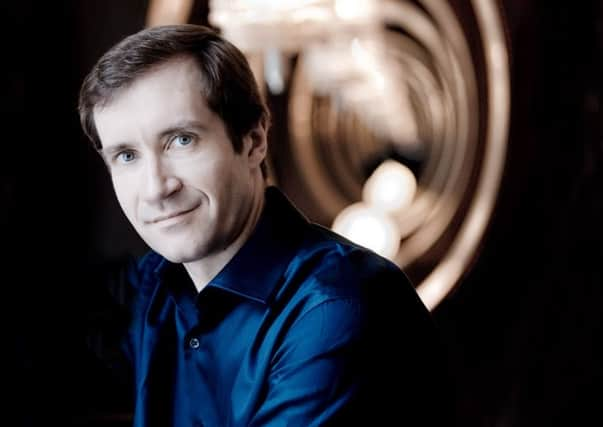Interview: Nikolai Lugansky on his Prokofiev series with the RSNO


Yet, speaking to Lugansky in London last weekend, where he was performing Grieg’s Piano Concerto with the Philharmonia Orchestra, I was surprised to learn that the Prokofiev concerto series he will complete over the next couple of weeks in Scotland with the RSNO (Nos 1, 3 & 5 feature in these upcoming two concerts, Nos 2 & 4 having been dispensed with last season) have taken him out of his normal comfort zone.
No 4, he says, was a “particular challenge to learn” back in April. Now it’s No 5 that is new to him. He was off to find a piano to get it finally into his fingers the minute we stopped talking. “I don’t know of any other piece that has taken me so long to study,” Lugansky admits. “It usually takes me several days to be able to play a piece like this by heart, but No 5 is the biggest challenge to memorise.”
Advertisement
Hide AdAdvertisement
Hide AdBut he’s not particularly worried. With over 50 major concertos in his repertoire, it’s simply a case of finding that odd spare moment in his world travels to add another to his impressive tally. He’s just been in Germany making his debut with the Berlin Philharmonic. “They’re not a normal orchestra, more an ensemble of brilliant soloists,” Lugansky says. “You know no matter how good they play in rehearsal, they’re going to play even better in the concert. It was a wonderful experience.”
Can he pinpoint what makes the Fifth Concerto so difficult? “I would say it’s because it’s like a Konzertstücke, so full of material that changes in an instant. Prokofiev himself sought to write something simple and clear, but the outcome was quite different. There is probably only one moment – the slow movement – where you go to something deep, dark and serious. Otherwise, in all five movements, the many tempo changes make it so kaleidoscopic in character.”
The same could be said of this Prokofiev series as a whole. Ask Lugansky if he has a favourite among them and the initial reaction is a long thoughtful silence. “No, I can’t say I have,” he eventually offers. “Of course, the greatest are Nos 2 & 3 – one so full of darkness, the other so full of sun. But probably the Fourth was the biggest discovery for me, one of Prokofiev’s most introverted pieces, the least played and unbelievably difficult. It took me many times before I felt in love with it.”
And the youthful exuberance of the First, which also appears in this week’s programme alongside the Fifth? Is there anything in any of these concertos that perhaps reflects the true inner state of a composer who chose initially to enjoy the Western freedom of a Russian emigré performer, before returning to the Soviet Union and working, like Shostakovich, under Stalin’s censorial strictures?
“That is genuinely a very difficult question,” says Lugansky, though he is sure that, unlike Shostakovich, Prokofiev’s music is “not a diary of
his life, or an expression of the history or politics of his country. With Shostakovich, you follow what was happening; with Prokofiev it’s a bit like Mozart – you cannot follow in Mozart what was happening in his country or personal life.”
The Third Concerto is a case in point, Lugansky suggests.
“It’s his most popular and most optimistic work for piano and orchestra, yet it was started in 1917, the most tragic year for Russia. He wasn’t interested in political feelings, only in writing beautiful music, or in capturing, as in the Fifth Concerto, his love of theatre.” Lugansky calls it “bufonada”, a kind of tomfoolery.
Advertisement
Hide AdAdvertisement
Hide AdBut there will be nothing glib in Lugansky’s triple appearance with his old friends, the RSNO.
“It’s a wonderful collective, and I
feel sometimes the experience is more intimate in Scotland than in a big city like London, where you can feel lost.” For music as intimately charismatic as Prokofiev’s, that sounds like the perfect chemistry. ■
KEN WALTON
*Nikolai Lugansky performs Prokofiev’s Piano Concertos Nos 1 and 5 with the RSNO at the Caird Hall, Dundee, on 3 November, at the Usher Hall, Edinburgh, on 4 November and at Glasgow Royal Concert Hall on 5 November. He performs Prokofiev’s Piano Concerto No 3 at Perth Concert Hall on 10 November, at the Usher Hall, Edinburgh on 11 November and at Glasgow Royal Concert Hall on 12 November, www.rsno.org.uk